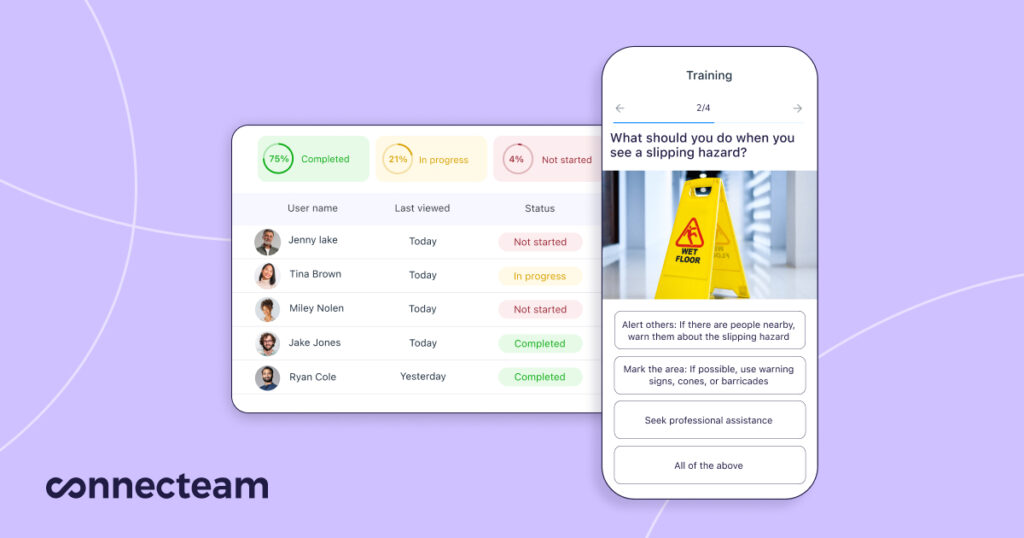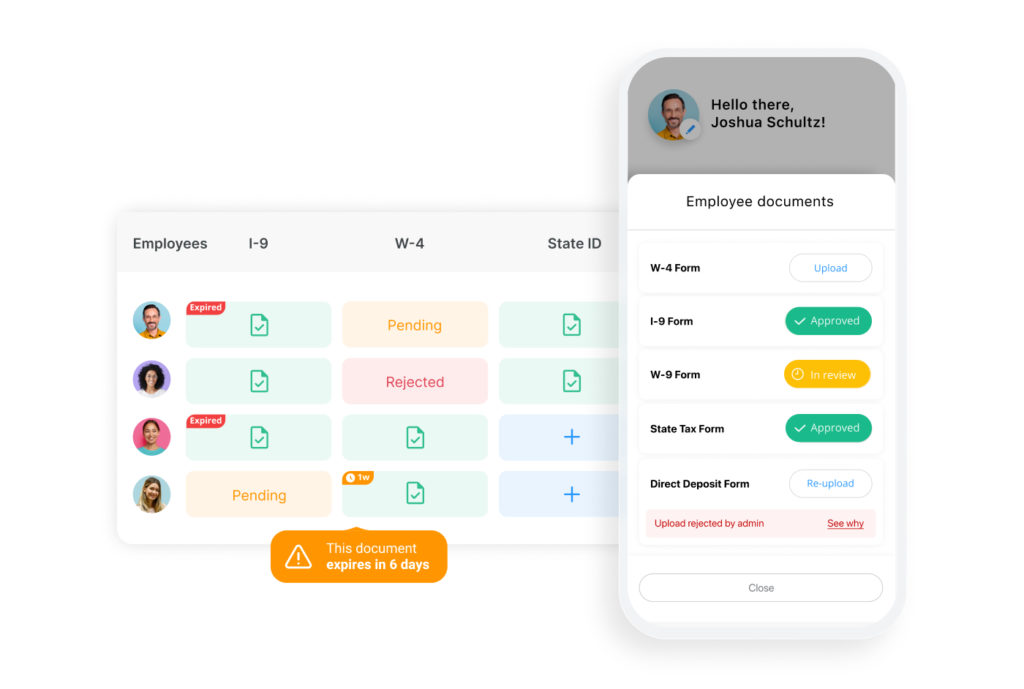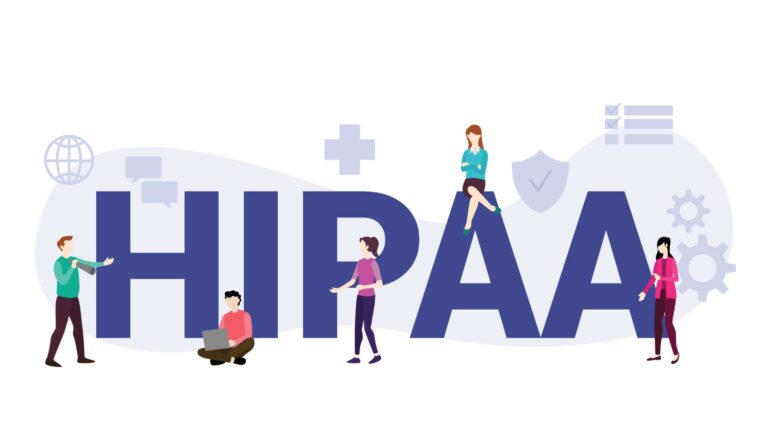HIPAA training is essential for legal compliance and data security. Discover key requirements and the best courses to ensure you’re covered.
HIPAA training is crucial for compliance, ensuring staff handle patient data safely and legally. Failure to comply with HIPAA can lead to severe penalties, including hefty fines and legal action.
In this article, we explore essential HIPAA compliance training requirements and recommend the best courses to help you stay compliant.
What is HIPAA?
HIPAA, the Health Insurance Portability and Accountability Act of 1996, is a U.S. law that protects the privacy of patients’ medical data.
It sets national standards to protect individuals’ health information, known as protected health information (PHI), and applies to health plans, healthcare providers, and healthcare clearinghouses.
The law ensures that patient’s medical information is used and disclosed only for specific purposes and with their consent, giving them control over their health data.
What is HIPAA Training? Why is it important?
HIPAA training educates healthcare workers and staff who handle patient information about the Health Insurance Portability and Accountability Act (HIPAA) regulations. It’s crucial because it
- prevents accidental breaches of patient privacy,
- reduces legal risks for healthcare providers, and
- builds trust with patients by ensuring their medical information is protected.
What does HIPAA Compliance Training cover?
HIPAA training covers three core topics: the Privacy Rule, the Security Rule, and the Breach Notification Rule. Let’s break down each of these:
Privacy Rule
The HIPAA Privacy Rule sets the standard for the protection of individuals’ medical records and other personal health information (PHI). It outlines who is permitted to access health information and under what circumstances.
Training might include scenarios like handling requests for patient information from a family member or law enforcement, which teaches you when it is and isn’t appropriate to disclose PHI.
Security Rule
The HIPAA Security Rule specifically focuses on electronic protected health information (ePHI). It mandates that healthcare providers put in place certain administrative, physical, and technical safeguards to ensure the confidentiality, integrity, and security of patient’s electronic health information.
For example, training could involve instructing staff on secure email practices, proper encryption, and how to conduct risk assessments to identify potential security vulnerabilities.
Did You Know?
Connecteam is a fully HIPAA compliant healthcare app. It enhances data security through 2-factor authentication (2FA), single sign-on (SSO), and advanced encryption.
Connecteam ensures safe document storage and sharing to prevent HIPAA breaches and supports encrypted messaging for secure communication of texts, images, and documents. These features safeguard PHI and support compliance by restricting access to authorized personnel only.
Breach Notification Rule
This rule requires covered entities and their business associates to provide guidelines on
- what constitutes a breach
- the steps to follow in the event of a breach, and
- the required notifications to affected individuals, the Department of Health and Human Services (HHS), and in certain circumstances, the media.
Additionally, HIPAA training should discuss enforcement rules, including the various tiers of penalties based on the nature of the violation.
HIPAA Training Requirements
Here’s what the law actually says about HIPAA training. (216 words)
§ 164.530(b)(1) Training – A covered entity must train all members of its workforce on the policies and procedures with respect to protected health information required by this subpart and subpart D of this part, as necessary and appropriate for the members of the workforce to carry out their functions within the covered entity.
§ 164.530(b)(2)(i) A covered entity must provide training that meets the requirements of paragraph (b)(1) of this section, as follows:
(A) To each member of the covered entity’s workforce by no later than the compliance date for the covered entity;
(B) Thereafter, to each new member of the workforce within a reasonable period of time after the person joins the covered entity’s workforce; and
(C) To each member of the covered entity’s workforce whose functions are affected by a material change in the policies or procedures required by this subpart or subpart D of this part, within a reasonable period of time after the material change becomes effective in accordance with paragraph (i) of this section.
(ii) A covered entity must document that the training as described in paragraph (b)(2)(i) of this section has been provided, as required by paragraph (j) of this section.
The HIPAA training law mandates three main things:
- Who needs training
- Timeliness and frequency of training
- Documentation or proof of training
Let’s discuss these one by one:
Who needs HIPAA training?
If you’re working in a healthcare setting, whether you’re handling patient records, involved in patient care, or working with providers in a business capacity, you need to undergo HIPAA training. This includes:
- Medical staff: Including doctors, nurses, and pharmacists who directly handle patient care and PHI.
- Administrative personnel: Such as receptionists, billing staff, and medical records clerks who manage or have access to PHI.
- Support staff: Maintenance, janitorial, and other staff who might encounter PHI in their work environment.
- IT professionals: Those who implement and manage security protocols for electronic health records and other PHI databases.
- Business associates: External parties like consultants, accountants, lawyers, and third-party administrators who handle PHI through their services to a covered entity.
- New hires: Train your new employees on HIPAA policies and procedures as soon as possible to ensure they start their role with a strong understanding of how to handle PHI.
- Temporary staff and volunteers: Even if you hire temps, HIPAA training is mandatory if it involves access to patient information.
Timing and frequency of HIPAA training
HIPAA mandates specific timing for training to ensure that all personnel handling protected health information (PHI) are up to date on the latest compliance protocols:
- Initial training: New employees must complete their HIPAA training “within a reasonable period of time” as per the Privacy Rule. However, specific timelines vary by state and organization. For instance, new employees in Texas are required to complete training within 90 days, whereas those at the Defense Health Agency have a 30-day deadline.
- Annual training: Organizations should conduct HIPAA training at least annually to refresh employees’ knowledge and to cover any changes in HIPAA regulations or company policies.
- Training upon policy changes: Whenever there are significant changes to HIPAA-related policies or procedures, re-training is required. Employees affected by these changes must be trained within a reasonable period, typically within 30 to 60 days, to ensure they understand the new requirements.
- Responsive training: If an organization experiences a PHI breach or identifies a compliance issue, it often conducts reactive training to address the specific problem. This type of training is tailored to prevent a recurrence of the same issue.
- Ongoing awareness: Besides the formal training sessions, maintaining ongoing awareness through newsletters, posters, and reminders can be an effective way to keep HIPAA rules top of mind for employees.
Did You Know?
Connecteam employee training app features powerful tracking tools that monitor the progress of each employee’s HIPAA training, from new hires to seasoned staff. This ensures that all team members have completed the necessary training modules on time, helping organizations maintain compliance effortlessly.

Documentation and compliance proof
Documenting HIPAA training proves that your organization is taking the necessary steps to educate its staff about HIPAA requirements. Plus, it helps protect you in case of audits or investigations.
What to document
- Participant names: Record of all employees who attended the training sessions.
- Training dates: Exact dates when the training sessions were held.
- Training content: A brief description or outline of what topics were covered during the training sessions.
- Trainer details: Information about who conducted the training, especially if the trainer is from outside the organization.
- Assessments: Results of any quizzes or tests conducted as part of the training to assess understanding.
Methods of documentation
You may document in the following forms:
- Electronic records: Many organizations use Learning Management Systems (LMS) to manage and document their training programs. These systems can automatically track and store training data, which can be easily retrieved when needed.
- Paper records: Some smaller organizations might file manual sign-in sheets along with training outlines and materials.
Retention of records
HIPAA regulations do not specify a set period for how long training records must be kept, but it is generally advisable to keep them for at least six years, aligning with other HIPAA documentation retention requirements. This timeframe covers most audit and investigation periods.
Did You Know?
Connecteam allows you to track the expiration dates of employee documents and certifications, including HIPAA training, ensuring that all necessary documents and certifications are up-to-date and compliant. Plus, it stores all documents in one secure location for easy access.

9 Best Courses for HIPAA Training: Free & Paid
Various reputable training bodies and educational platforms offer many free and paid courses for HIPAA training. Here’s a breakdown of some of the top options available, highlighting their key features, duration, modules, and pricing:
Compliancy Group’s HIPAA Compliance Training Free
Course Title: Online HIPAA Compliance Training
- Target audience: Healthcare organizations of all sizes, including dental and mental health professionals, medical office staff, and business associates.
- Key Topics: Basics of HIPAA including the Privacy, Security, and Breach Notification Rules, Recognizing and handling PHI, Cybersecurity best practices
- Duration: Not specified.
- Modules: 2 (HIPAA 101 Training, Cybersecurity Best Practices Training)
- Fee: Free
For more details, please visit Compliancy Group’s HIPAA Training.
HIPAATraining.com
Here are the key details of the programs offered by HIPAATraining:
- Pricing for individuals: Courses start at $29.99 for HIPAA Awareness Training, with an optional bundle including HIPAA Security Training for $49.99.
- Features: The courses are self-paced and available online 24/7. Upon completion, learners receive a two-year nationally recognized certificate and free retakes.
- Organizational training: Custom quotes are available, with volume discounts starting at 10 seats. Organizational plans offer features like shared multi-user logins and detailed training logs.
For more detailed pricing information and course options, visit HIPAATraining.com Pricing.
AHIMA CHPS Certification
Course Title: Certified in Healthcare Privacy and Security (CHPS®)
- Target audience: Professionals seeking to demonstrate expertise in designing, implementing, and administering comprehensive privacy and security protection programs in healthcare organizations.
- Key topics: Privacy and Security Dimensions of Health Information Management, Best Management Practices for Healthcare Privacy and Security
- Duration and modules: The CHPS exam is timed, with a total duration of 3.5 hours. It includes 150 questions, covering four main competency domains. Passing score is 300.
- Fee: AHIMA Members: $259, Non-members: $329
For more details and preparation resources, visit the AHIMA CHPS Certification page.
HIPAA training courses for various roles by HIPAA Exams
HIPAA Exams is IACET accredited, and offers the following courses:
Courses and target audience:
- HIPAA for Business Associates: Designed for business associates handling PHI.
- HIPAA for Healthcare Workers: Tailored for healthcare professionals.
- HIPAA for Human Resources Professionals: For HR staff managing PHI in employment settings.
- HIPAA for Dental Offices: Specifically for dental office staff.
- HIPAA for Mental Health Care Providers: Focused on mental health professionals.
Key topics covered across courses:
- HIPAA Privacy, Security, and Breach Notification Rules
- Handling PHI and compliance requirements
- Real-life scenarios and case studies to enhance understanding
Duration and pricing:
- All courses are designed to be completed in about 90 minutes.
- Each course is priced at $28.99 per participant.
For more information and specific course details, please visit HIPAA Exams.
OSHAcademy HIPAA Privacy Training
Course Title: HIPAA Privacy Training
- Target audience: employees in the healthcare sector
- Key topics: HIPAA law components, privacy and security rule, good privacy practices, administrative, physical, and technical Safeguards, non-compliance enforcement
- Duration: 1 hour
- Modules: 3
- Fee: Free access. $15.99 for PDF Certificate, $27.99 for original certificate and training material
For more details, visit HIPAA Privacy Training.
Pro Tip
Use the Connecteam employee training app to develop tailored HIPAA training courses incorporating multimedia, gamification, and quizzes, allowing employees to complete training on their mobile devices at their convenience. Plus, you can track their progress through the app.
ProHIPAA – Online Training Course by ProTrainings
Course Title: HIPAA – Online Training Course
- Target audience: Healthcare professionals including physicians, nurses, pharmacists, dentists, and business associates who require HIPAA compliance training.
- Key topics: HIPAA Privacy Rule and Patient Rights, Security and confidentiality of PHI, Breaches, Violations, and Compliance
- Duration: Approximately 35 minutes total, divided into multiple short videos.
- Modules: 3
- Fee: $29.95 for the full course with exam and certificate of completion.
For more details and to enroll, visit ProTrainings HIPAA Course.
Intro to HIPAA by AccountableHQ
Course Title: Intro to HIPAA
- Target audience: Employees with access to protected health information (PHI) in healthcare-related fields.
- Key topics: Overview of HIPAA, Details on the Privacy and Security Rules, Updates from the HITECH Act and Omnibus Rule
- Duration: Four-step video course, each part designed to explain different aspects of HIPAA thoroughly.
- Fee: Free
For more details and to start the training, visit Intro to HIPAA.
EdApp HIPAA Compliance Training Free
Course Title: HIPAA Compliance Training
- Target audience: Healthcare professionals and anyone involved with protected health information (PHI).
- Key topics: Overview of HIPAA regulations, Privacy, Breach, and Security Rules, Practical scenarios and best practices
- Fee: Free
- Course features:
- Mobile-friendly, microlearning format
- Interactive lessons with a gamified experience
- Editable content, allowing for customization
- Certificate of Completion provided
For more details and to access the course, visit EdApp HIPAA Compliance Training.
Coursera HIPAA course
Course Title: Healthcare Data Security, Privacy, and Compliance
- Target audience: IT professionals, healthcare administrators, and compliance officers in healthcare settings.
- Key topics: HIPAA compliance, Data privacy principles, Healthcare data security measures, Regulatory requirements in healthcare IT
- Timing: approx. 5 hours (video)
- Modules: 4
For more details and to enroll, visit Coursera’s Course Page.
This Might Interest You
Stay compliant and safeguard sensitive information! Read our in-depth review of the best HIPAA compliance software to ensure your business meets regulatory standards and avoids costly penalties. Plus, explore the best HIPAA-compliant texting apps to securely communicate with your team and clients. Find the right tools to protect your business today!
Implement HIPAA Training with Connecteam
Connecteam is a fully HIPAA-compliant employee management platform that helps you implement HIPAA training effectively and ensure compliance.
Here’s how:
Customized training creation: Use Connecteam to develop tailored HIPAA training courses incorporating multimedia, gamification, and quizzes, allowing employees to complete training on their mobile devices at their convenience. Plus, you can track their progress directly through the app.
Data security and compliance: The platform supports 2-factor authentication (2FA), single sign-on (SSO), and data encryption to protect sensitive employee and patient information. Document storage and sharing within the app are designed to prevent HIPAA breaches, making it safer to handle protected health information (PHI).
Communication and data sharing: Connecteam offers encrypted messaging for individual and group communications, which includes sharing of images, videos, and documents securely. This feature supports compliance by ensuring that PHI is not exposed to unauthorized personnel.
Access control and monitoring: Connecteam allows for detailed control over user access permissions and data usage monitoring through audit logs. This helps ensure that only authorized personnel have access to sensitive information, in line with HIPAA requirements.
Certification expiration tracking: Connecteam allows you to track the expiration dates of employee documents and certifications, ensuring that all necessary documents and certifications are up-to-date and compliant. This feature is accessible from anywhere at any time on their mobile devices
Stay Compliant With Effective HIPAA Training
Understanding and adhering to HIPAA training requirements is crucial for anyone handling patient healthcare information (PHI). Failure to comply can result in significant penalties.
According to the law, covered entities must train their workforce on privacy, security, and breach notification rules within a reasonable period of time. They must also document these training sessions for proof and potential audits.
Many reputable training bodies and educational platforms provide HIPAA training courses that help organizations in meeting these requirements effectively.
For an efficient training solution, Connecteam’s HIPAA-compliant app offers comprehensive features that ensure your staff is trained efficiently, your organization stays compliant, and enhances patient care through informed practices.
Get started with Connecteam for free today!
FAQs
What is HIPAA Certification?
Federal bodies don’t officially recognize HIPAA compliance certification, but private companies offer training programs that align with HIPAA guidelines. These programs educate organizations on protecting healthcare information to prevent breaches and ensure compliance. Completing these training courses can help organizations avoid violations and penalties.
How do you become HIPAA certified?
To become “HIPAA Certified,” you must complete a third-party education program or certification course. While federal agencies like HHS or OCR do not officially recognize HIPAA compliance certification, obtaining a certification shows that your organization and its employees understand and comply with HIPAA regulations, particularly the Privacy, Security, and Breach Notification Rules. This typically involves a third-party audit of your practices to ensure they meet HIPAA standards.





